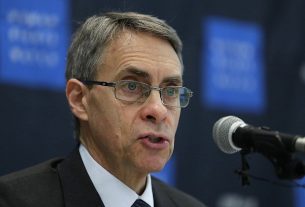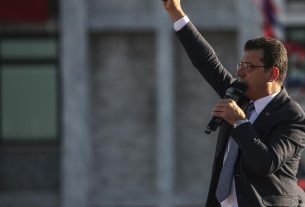Liam Byrne (Labour) quoted Michelle Bachelet about human rights.
London: UK’s Foreign Affairs Committee held a formal/oral evidence session on “Implementing the Integrated Review/Tilt to the Indo Pacific”. The first session was called “How does India fit into the UK’s Foreign and Defence policies?” with a specific focus on Kashmir. On the morning of the session, chaired by Alicia Kearns (Conservative), she sent out a letter to undisclosed recipients: “This session will explore India’s evolving geopolitical role, The United Kingdom’s relationship with the country, and an in-depth examination of India’s human rights record including in India-administered Kashmir, in order to consider prospects for improvement. Please feel free to pass this letter on to your constituents who may wish to follow the session…”
The witnesses were top quality, eminent and informed in their fields with genuine insights to offer the Committee, the team putting the witnesses together strove to achieve a balance.
The first witnesses were Asoke Mukerji, India’s former Ambassador to the UN and Sir Dominic Asquith, UK’s former Ambassador to India. Mukerji considers India as an emerging global power and UK needs to take account of the maritime dimension of India as in the 2015 “Security and Growth for All in the Region”, for India and Japan the Indo-Pacific mean the entire of the Indian and Pacific Oceans. The Integrated Review’s definition of the Indo-Pacific will define how India and the UK can cooperate, the Gulf of Aden and the Straits of Hormuz and Malacca are the three choke points for India’s trade, these areas cannot be left out of the definition.
Sir Dominic reminded everyone that the littoral of the IPR is half English speaking and half in the Commonwealth. He called India a major regional power with very significant global interests; he considered it important to look at the role India would play in constraining Chinese expansion into East Africa. As India is contiguous with China the emerging faultline that runs from Japan, South Korea to Australia is very important. He explained to the Committee that India no longer found the architecture of the world order after WWII (Bretton Woods) reflected the modern dynamic of geopolitics, and it would be in UK’s interest to have a bigger top table which would include India, bigger than P5 and G7 but smaller than G20. Economically, it is emerging Asia that will produce 75% of global growth in the next year. India and UK have strategic synergy in innovation and technology start-ups.
Sir Dominic anticipates continuing friction on the Himalayan border, which will need careful management. Mr Mukerji reminded the Committee of the informal dialogue mechanism between India and China’s leaders/military commanders and diplomats remain open although friction has intensified, somewhat due to the China Pakistan Economic Corridor which runs through the Indian state of Jammu and Kashmir. The CPEC and China’s interests in Nepal, Pakistan and Sri Lanka have a direct bearing on India’s role in the IPR.
Chris Bryant (Labour) quoted a journalist who said Prime Minister Modi was only interested in domestic power and that the Indian state is too dispersed for India to be a regional power, Mukerji refuted both of these aspersions. He said India was developing along institutional lines with all the necessary regulations. Sir Dominic explained that Narendra Modi is a pragmatist, who wants to transform India into a developed country in 25 years—modernisation not westernisation; he suggested the best of UK-India capabilities should flow both ways over the “living bridge” and confirmed the vigorous independence of Indian thought.
Henry Smith (Conservative) queried India’s reliability as a partner, Sir Dominic put the geography into perspective in that China and Russia overarch India, which means that India will avoid a clinch between the other two from which they are excluded; justifiably cheap oil and hydrocarbons are India’s main interest in Russia since the Ukraine war. India defence dependence on Russia is diminishing and he expects an incremental and positive improvement with the West. Mukerji confirms there is no treaty of alliance with Russia, it is for the mutual benefit of both partners. The globally interlinked world has been challenged by Covid and Ukraine; 120 Global South countries are meeting in India to present how the world should support them, sustainable development for all is a priority for India.
The second session panel consisted of Walter Ladwid III, King College Professor of South Asian security insurgencies and US foreign policy; Garima Mohan, Senior Fellow in India Foreign Policy at the German Marshall Fund; Mosharraf Zaidi from Pakistan’s Tabablab (Think Tank). Drew Hendry (SNP) opened the session with a question on what tensions exist between UK-India, Mohan said there was unprecedented attention on UK bilaterals from India, tensions are more or less eclipsed, maritime navy to navy interactions are increasing; Ladwig concurred that “tensions have largely been legacied” there is increased understanding about diaspora’s in UK from both countries. Zaidi claimed all legacy issues are anchored in Kashmir, he called Kasmir a “bleeding sore”, and suggested UK government engage with Kashmir to synchronise policy with the Integrated Review.
Liam Byrne (Labour) quoted Michelle Bachelet about human rights, asking if UK can do more to raise the issue of human rights in Kashmir. Zaidi would like UK to get involved in human rights across the Asia-Pacific region, he made comparisons on how human rights in China were neglected, claiming that Kashmir is a repeat situation. Liam Byrne suggested the 2019 Jammu and Kashmir Reorganisation Act broke the Shimla agreement and now the issue needs a multilateral approach. Garima Mohan posited that the Indian government would not be happy with that statement; she refused to be drawn into the pit.
Royston Smith (Conservative) asked what is it that the Indian Government and people want from the UK? Mohan explained Indian foreign policy does not see Europe from the prism of colonialism, the Quad countries dominate in relationship terms, UK’s role in the IPR and technology are important. Ladwig said Indian interlocutors are pragmatic. They see where the UK can help India be mutually economically beneficial: key technology, aerospace, jet and maritime propulsion, higher education, artificial intelligence, finance.
Saqib Bhatti asked how far will India’s demographic dividend and economic might help its power ambitions. Ladwig hopes that India’s young demographic will propel the Indian economy away from agriculture, as happened in South Korea, Taiwan, Singapore in the 70s, the challenge for India is to create enough jobs and maintain political stability; he asks could UK provide skill development at scale?
Mohan referenced the Lowy Institute’s Asia Power Index ranking of countries in the IPR, India is ranked no1 for demographic dividend, as the UK FTA nears its final stages India has said their attitude will be different this time and the Ministry of Commerce is deregulating to attract British investment. Mohan advised there is an Indian specific chapter in the refreshed Integrated Review which will provide new opportunities. Bhatti asked if India is a reliable ally against China given their human rights record, populism and neutrality towards Russia. Mohan replied in the IPR India is an important partner this is a first participatory move of this kind for India; India and EU have revived human rights dialogue, perhaps UK could do the same; Mohan refuted Bhatti’s claim that India was neutral but the chair Alicia Kearns interrupted with an accusation that India was “buying up all the cheap oil and supplying weapons systems to Russia… The actions say they are supportive of Russia” which rather surprised everyone, Kearns later corrected herself and saying that India’s defence purchases from Russia were funding the war. Where Kearns was fairly aggressive in her points Mohan kept neutral and articulated the view and contradictions from New Delhi, supported by many in the Global South.
Henry Smith (Conservative) asked Aman Hingorani, Lawyer and author of “Unravelling the Kashmir Knot”, about a solution for peace between India and Pakistan. Hingorani detailed the historical reasons for the politically, militarily, diplomatically, economically irreconcilable stalemate between India, Pakistan and China. Hingorani is suggesting using international law to depoliticise the Kashmir issue, he explains that the law that gave birth to Pakistan actually made J&K a part of India, successive governments have not honoured this law. Kearns threw these suggestions to Zaidi, who brought in UK Kashmiri constituents and said that India was the antagonist and occupying force in a four-way conflict. Zaidi proposed Saudi Arabia, UAE and Qatar as UK’s key partners in Kashmir. Zaidi said in 30 years more people in UK will look like him and everyone should get along.
Zaidi claimed that there was a chance of India-Pakistan conflicts escalating and he questioned how India could be a viable partner when everything revolves around Kashmir. Ladwig queried if there was a western conception of human rights, India may have a slightly different definition of democracy but India has trained thousands of African and Asian officials in electoral parliamentary democracy and good governance and engagement with civil society, India does contribute to democracy in its region. Mohan chipped in that the conversation needs to zoom out from Kashmir to be more about the “China problem”. Ladwig explained to Hendry that India’s foreign policy and domestic policy is moving in different directions that is a challenge for policy makers, but India is not trying to upend the international system, India are increasingly building relationships with likeminded democracies.
Kearns asked the witnesses in what are the key risks to miscalculation in the India-China and the India-Pakistan scenarios. How to make progress on Kashmir? And what is the Indian human rights prism?
Hingorani said human dignity and human worth is the definition of human rights in India; he continued that historical wrongs have led to present day conflicts unless those are addressed he cannot envisage any lasting peace between India and Pakistan until the Western community grasp the impact of 1947 on the people of the subcontinent, how it heightened nationalism and religious identity. Hingorani directed Kearns to the British archives where the evidence and statutes of Britain scripting the division of India are recorded, he recommended the international community use international law to make progress in Kashmir.
Garima Mohan made an important point regarding levels of awareness about the Global South in the Western media; Galwan was only reported by the Guardian after 10 days… she said it was “astounding that 2 nuclear powers having a border disagreement after 45 years” was not immediately newsworthy. Mohan explained that India bought weapons from the USSR when the West were supplying weapons to Pakistan, now India have recognised an over dependence on Russian weapons which is being corrected over the long term; in the meantime, the West needs to examine where the international order is being violated by China and what international law can do about it.
Zaidi questioned India’s account of events. He suggested that India had different accounts of events at Galwan. As was typical in this session the subject reverted to Kashmir and Zaidi revisited in more detail all the points he had made earlier. Zaidi concluded that the only way that India can become a net security provider in the IPR is with a resolution to the Kashmir issue.



